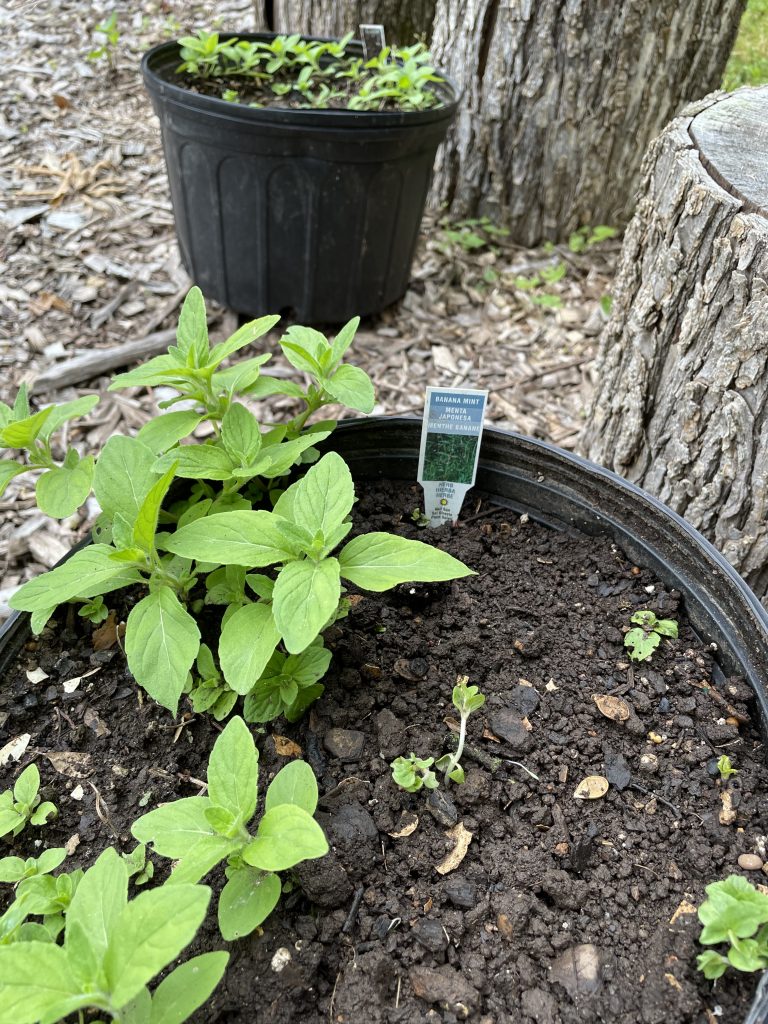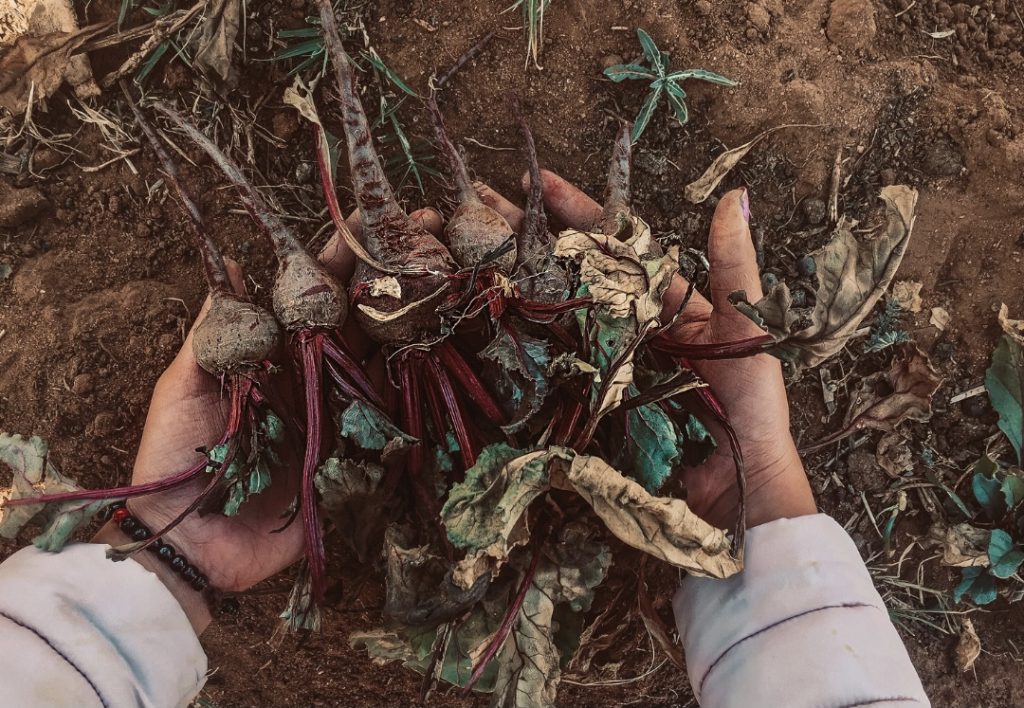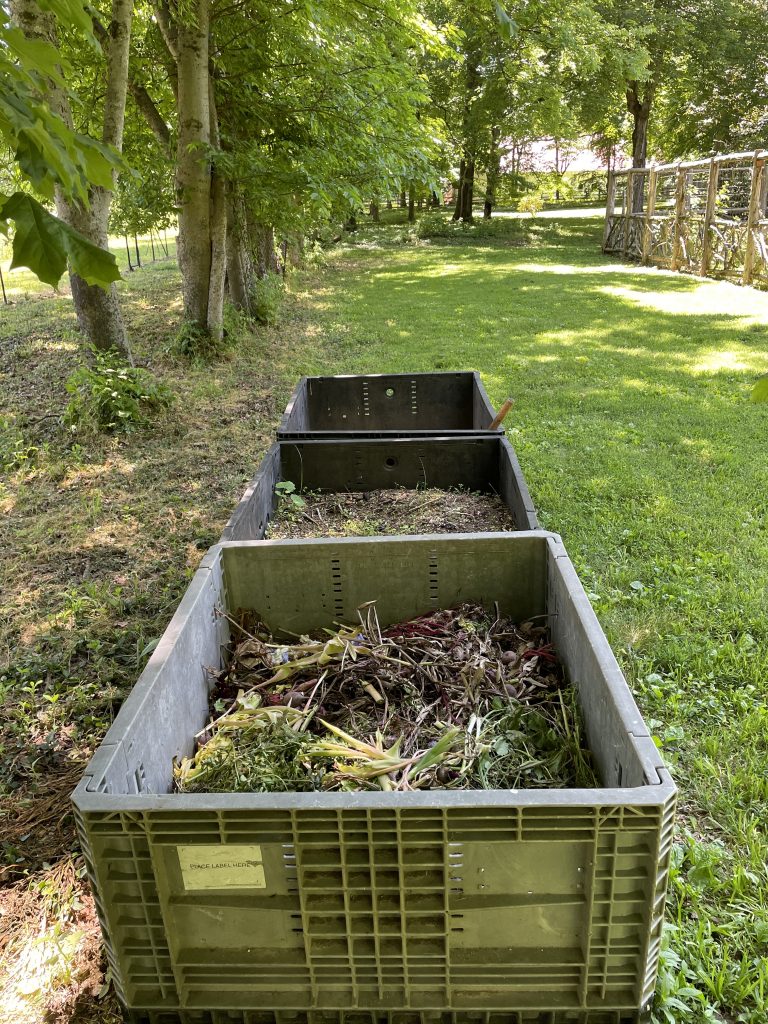Let’s Talk About Composting
Composting: Maybe you don’t know much about it, maybe it seems like a lot of work, or maybe you think it’s more than your window-sill herb garden or flower bed needs? As Saturday, May 29 is National Learn About Composting Day, we wanted to help dispel the myths around this easy-to-do and beneficial practice that enriches soil quality and reduces food waste.

Composting is much easier than you might expect, and it all starts with one easy act – instead of tossing your food scraps, save them. That’s it! The following materials can be used for composting – simply store food scraps in a ventilated container or in your refrigerator until you’re ready to add them to your bin. Basically, if it came from the ground, it’s safe to put back into the ground. Examples include:
- Coffee grounds
- Egg shells
- Vegetable scraps and peels
- Fruit scraps and peels
Non-food materials, like grass clippings, green garden trimmings, plant material, dry leaves, and shredded paper are also great to put into your compost pile – so you can make use of a lot of materials you would otherwise throw away every day.
Things that can’t be composted? Dairy, oils, meat and bones, or trash like plastic and metals.

Another point of confusion that can arise when considering composting is how much room you need to do it. Do you need a small bin? One of those standing tumblers? Or a huge, multi-bin system? Creating a compost pile, whether it’s in your yard, on your apartment balcony, or on a farm, is all about what works best with your space. There are a few things necessary, no matter the location:
- Pick a location with a good balance of sunlight and shade
- The location must have access to water to help the materials break down
- A pitchfork and shovel, or for smaller spaces, a hand trowel and hand rake
- A container to hold your compost pile, which can be as simple as a plastic storage tote
In some areas, there are also companies that pick up your food scraps and bring you nutrient-rich soil in return. So even if you’re limited on space, you can still reap the benefits of composting!
What are those benefits?
- Put food and yard waste to good use
- Reduce waste that would otherwise end up in landfills
- Add nutrients to soil for gardening needs
- Give back to the environment and the land
If you do choose to compost at home, here are the basics:
- Alternate layers of green and brown materials
- Wet each layer with water
- Mix and turn over materials regularly until original materials have broken down into a soil-like, organic matter
You can read more about the entire process, including the tools and materials needed to compost by checking out this article on composting basics from NPR, “How to Compost at Home.”

The Land Trust for Tennessee staff composts at Glen Leven Farm, where our Nashville offices are located. Thanks to our friends at the Nashville Food Waste Initiative, we have composting bins to help us reduce our food waste at the office and provide nutrient-rich materials to put back into the soil in the gardens and flowerbeds on the property.
If you’d like to learn more about composting or explore professional options available in your area, check out some of the companies and resources below.
State-wide resources
Tennessee Environmental Council
Tennessee Department of Environment and Conservation
West Tennessee
The Compost Fairy – Memphis area
Compost House (Atlas Organics) – Memphis area
Waste Not! Composting – Jackson area
Middle Tennessee
Compost Nashville – Nashville area
Metro Nashville Public Works – Nashville area
The Compost Company – Clarksville and greater Middle Tennessee area
East Tennessee
Green Heron – Knoxville area
City of Knoxville Waste & Resources Management – Knoxville area
Compost House (Atlas Organics) – Chattanooga Area
Hoffman Composting – Johnson City area